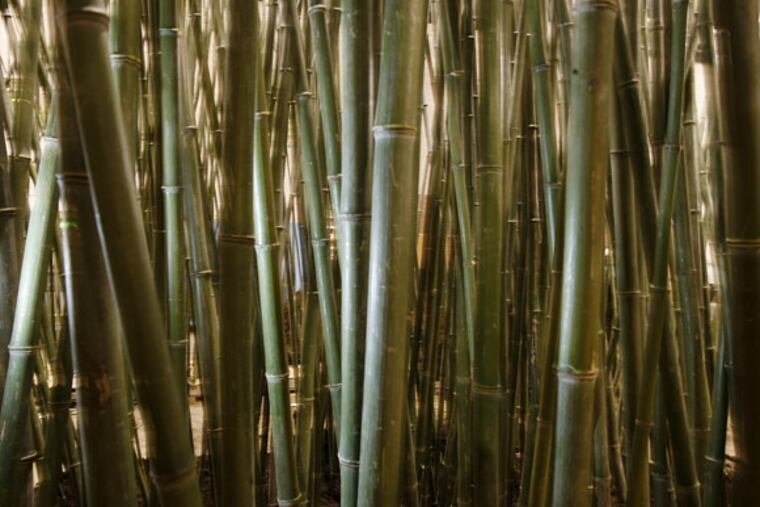Towns in Philadelphia’s suburbs step up to beat back an enemy: bamboo
Matt and Jane Golas planted bamboo outside their Radnor home for privacy. Then it grew into a problem that they couldn't control.

Matt and Jane Golas made the move to Radnor from Washington in the 1980s, bringing among their worldly possessions some bamboo.
They planted the thick, cylindrical grass along their property line, looking for privacy from nearby Odorisio Park. It grew well. Too well.
“It was very aggressive," said Matt Golas, 66. "Before we knew it, we had a 30-by-10 plot of this stuff that grew over the telephone wires. So we decided, maybe it’s not a great idea.”
The couple tried to rip the plant out of the ground, but its roots were stubbornly ensnared in the soil. In the end, the Golases spent nearly $3,000 to hire a tree service that professionally removed the bamboo — every trace of it.
Elsewhere in Philadelphia’s suburbs over the ensuing decades, homeowners have grappled with controlling bamboo, a invasive grass that can grow several inches in a single day and impede the growth of native foliage. And in the last few years, Lower Merion, Marple, Swarthmore, and Upper Darby have banned residents from planting bamboo outside.
Now, Radnor has joined in with a ban of its own. One of those behind the measure is Matt Golas, a member of Radnor’s Shade Tree and Planning Commissions and a former Inquirer editor who couldn’t help but remember his bamboo misadventure.
The bamboo ban, enacted in June, came after a growing number of residents complained to town officials about unruly bamboo encroaching on their property, said John Hosbach Jr., Radnor’s arborist.
According to the township’s new ordinance, Radnor residents who have bamboo on their property can keep it as long as they maintain it and prevent it from spreading to surrounding properties. But new bamboo is forbidden. Violators face fines of up to $500. People who choose to remove bamboo are responsible for digging it out of the soil, or paying someone else to do it.
“We’re asking people to be thoughtful about what they’re planting," said Lisa Borowski, president of Radnor’s commissioners.
Hosbach, the arborist, pointed to the trouble bamboo can cause if left unchecked.
“It’ll displace a natural forest," he said. “We have a lot of oaks and maples that are regenerating in Radnor parks. The seedlings will just die off, and the bamboo will take over.”
Its growth, alarming in its size and speed, can take people aback. It’s a situation Matt Golas is all too familiar with.
“I think a lot of people don’t realize that it’s a grass, and it’s going to thrive if you don’t maintain it," he said. "And you can’t manage it once it gets to that size.”